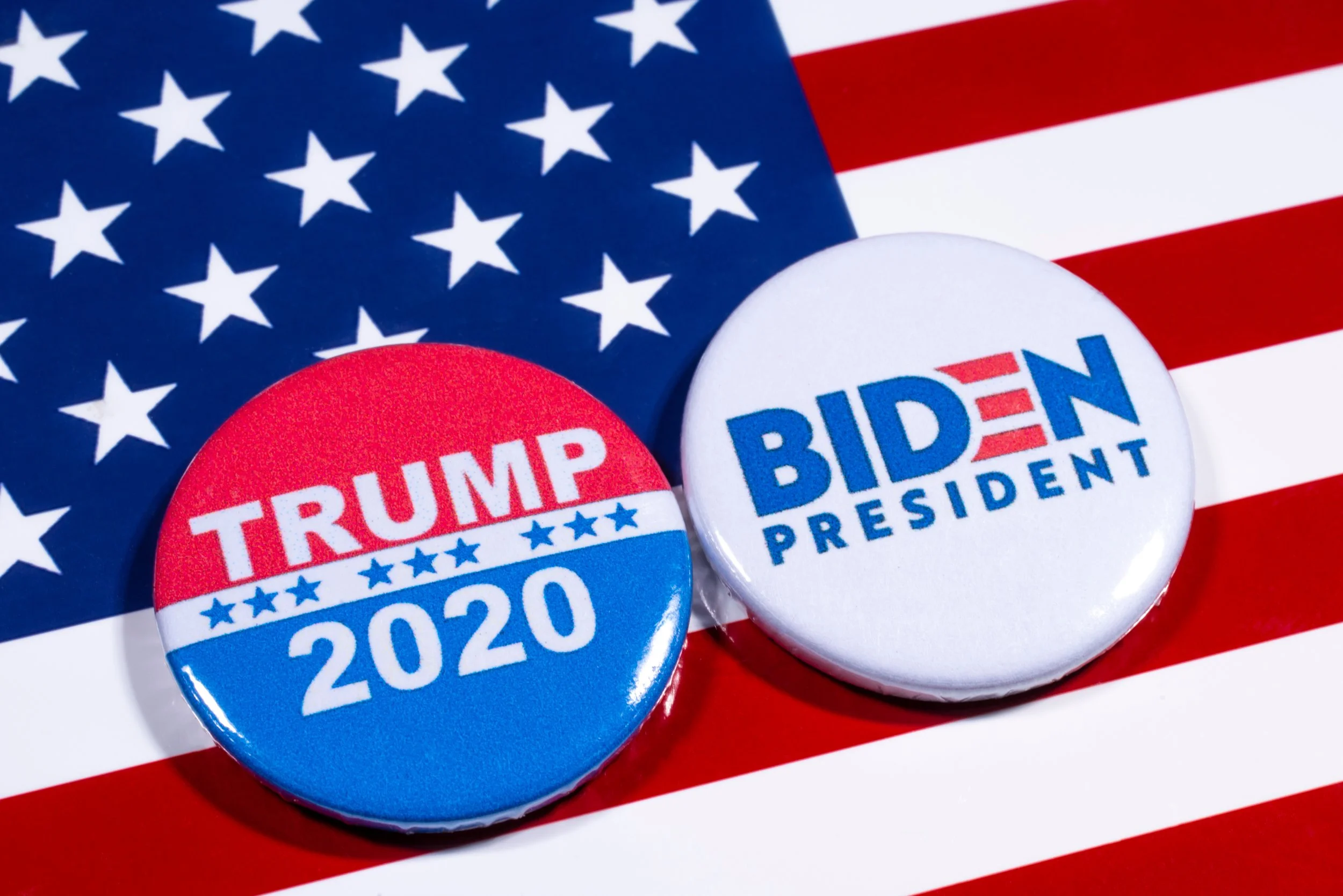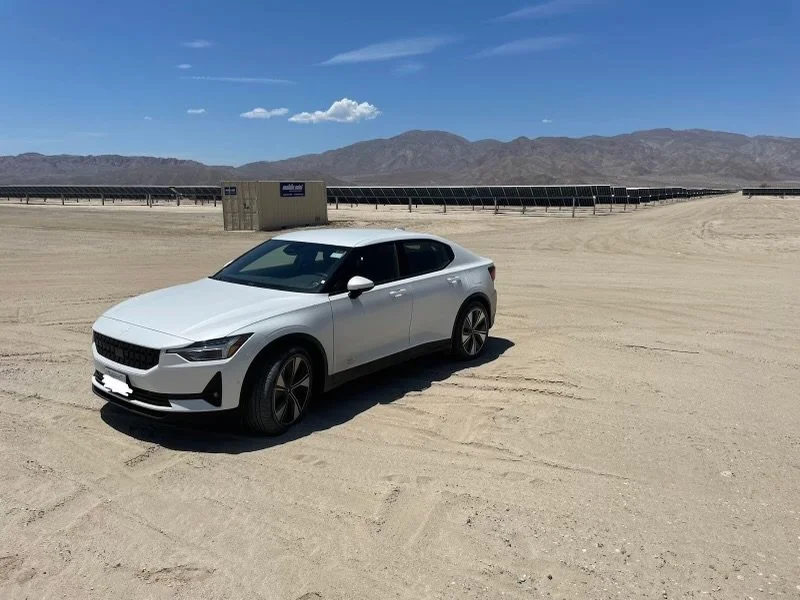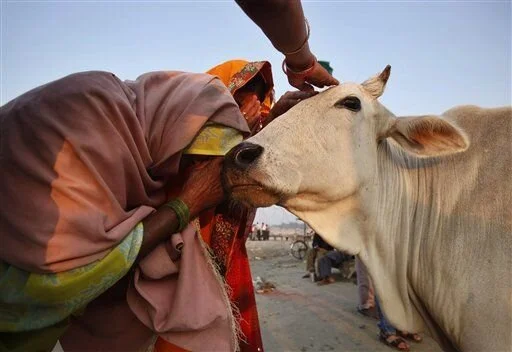Settler colonial policies aimed at prohibiting Indigenous controlled burnings have left dry land throughout California ripe for powerful wildfires.
Stay informed about the environment this election! Lily Zufall breaks down the climate policies of Donald Trump and Kamala Harris so you know who to vote for.
Editor Lula Fox reveals the environmental devastation wrought by Israel’s invasion of the Gaza Strip.
Author Lindsey Nickel breaks down the climate policies of the Trump and Biden administrations to find out which president is really better for the environment.
This article by Rachel Yoon delves into the paradox of sustainability in pregnancy products, highlighting the exploitation of maternal anxieties by companies through greenwashing tactics.
A review of the Polestar 2 from environmental science major and author Max Bennet.
In recent years, the palm has been insulted. It’s been clumped.
Northwestern offers a wide range of environmental-related courses. With such a varied and vast course list, it can be hard to determine what environmental classes are the best ones to take. The wide range of factors to consider like workload, professor teaching style, and content make narrowing down the list difficult even with CTECs. I’ll be discussing some characteristics of these classes and my personal experiences with them.
Cancel culture, which once started as a movement of accountability, has overgrown into a mangled mess of self-censorship, perfectionism, and fear of speaking out. Due to this dynamic, I’ve personally noticed an increase in inauthentic online environmental activism in hopes of self-preservation, of being “on the right side,” even if they don’t know or really care about what they're posting.
“Internet vegans”, social media influencers who create platforms promoting their lifestyle choices, argue that eating any animal products is immoral, and only by going vegan can someone truly be environmentally conscious. While many vegans do not share these views, the rhetoric of these extreme vegans who argue that non-vegans are immoral is extremely problematic for a wide range of reasons. Hannah Dembosky shares her opinion.
Every year, homeowners spend countless hours of their spring and summer de-weeding their yards, attempting to get rid of those little yellow flowers that children make a wish on. But why are dandelions so despised? Danielle Johnson shares her opinion.
In this piece coordinated by In Our Nature’s Carlyn Kranking, a few students share their experiences with the first environmental courses they took at Northwestern University, and what impact these courses had.
Do animals have moral standing? How do cultures around the world perceive animals differently and what implications does this have on the way we should be treating them? Find out in Emma Belanger’s eye-opening article.
Despite falling air pollution and carbon dioxide levels as millions across the world are placed under lockdown, our planet is hardly a beneficiary of the coronavirus outbreak, Ginny Ip explains. Read more to find out why.
Can the Mauna Kea protests bring us closer to nature? Read here about Hannah Hall’s trip to Hawaii and learn more about Mauna Kea and its protectors.
To most people, especially college students, adopting a completely zero-waste lifestyle seems next to impossible. Fortunately, Danielle Johnson shares that the best way to do zero-waste is to do it ‘imperfectly,’ provided that more people start doing it. Find out why in her newest ECOpinion.
While climate change was previously regarded as of secondary importance next to economic development and pressing social issues, the Chinese government has placed environmental concerns at the top of its agenda in recent years, taking serious steps to promote clean renewable energy technology and enforce environmental laws.
What is the relationship between women and the natural world? Is there a connection between the exploitation and degradation of the environment and the subordination and oppression of women? In her fascinating article, Emma Belanger explores the intersections between gender and ecology, and what it means to be a female environmentalist today.
What will the year 2100 look like if the Earth gets 2°C warmer, according to current predictions? In her debut piece, Madison Fielder paints a harrowing picture of an immediate future that will be our reality only if leaders take action now.
What sets apart animals in Evanston from those in more rural areas? Are urban animals more intelligent than their backwoods, hippie counterparts? Find out in Emma Belanger’s creative nonfiction piece.
Living in Chicagoland and submerged in the world of constant college activities, the great outdoors seem pretty far removed. Especially now, when leaving the building means exposure to numbing temps and piercing winds. However, exposure to nature—even just looking at it!—could have positive affects on your mental health, productivity and more. Read more in Emily Jahn’s Ecopinion.
The government shutdown affects us all—Congress, teachers and even National Parks. With nearly all of the NPS furloughed, parks like Yosemite and Yellowstone are a dangerous free-for-all. Read more in Emily Jahn’s article.
It’s that time of year again! The holidays call for gift giving, but how can we give eco-consciously? Enter minimalism. Read more in Ginny Ip’s article.
Can honey not be organic? As it turns out, most honey is treated to prevent mite infestations. Anna White interviews local Chicago-area beekeepers to find out more about treated versus treatment-free beekeeping.
Although Canada Goose has become a well known luxury coat brand, few know about the production methods this company uses. Ginny Ip has the details.
Congressman Ryan Zinke is a mixed bag when it comes to his prospects as a wilderness advocate. Ginny Ip takes a closer look at his track record and what his leadership might mean.
Yes, it is super cool to dress in only black and white, but there’s a lot more to minimalism than most people think. Ginny Ip explains.
Looking for an authentic experience of nature without leaving your bed? Katrina Holland has it for you.
Ever wondered where your national park entrance fees go? Leta Dickinson has the scoop.






























Fracking, among other initiatives put forth by big businesses, continues to invade on the wilderness that we enjoy. Emily Jahn explains from first hand experience why this issue needs our attention.